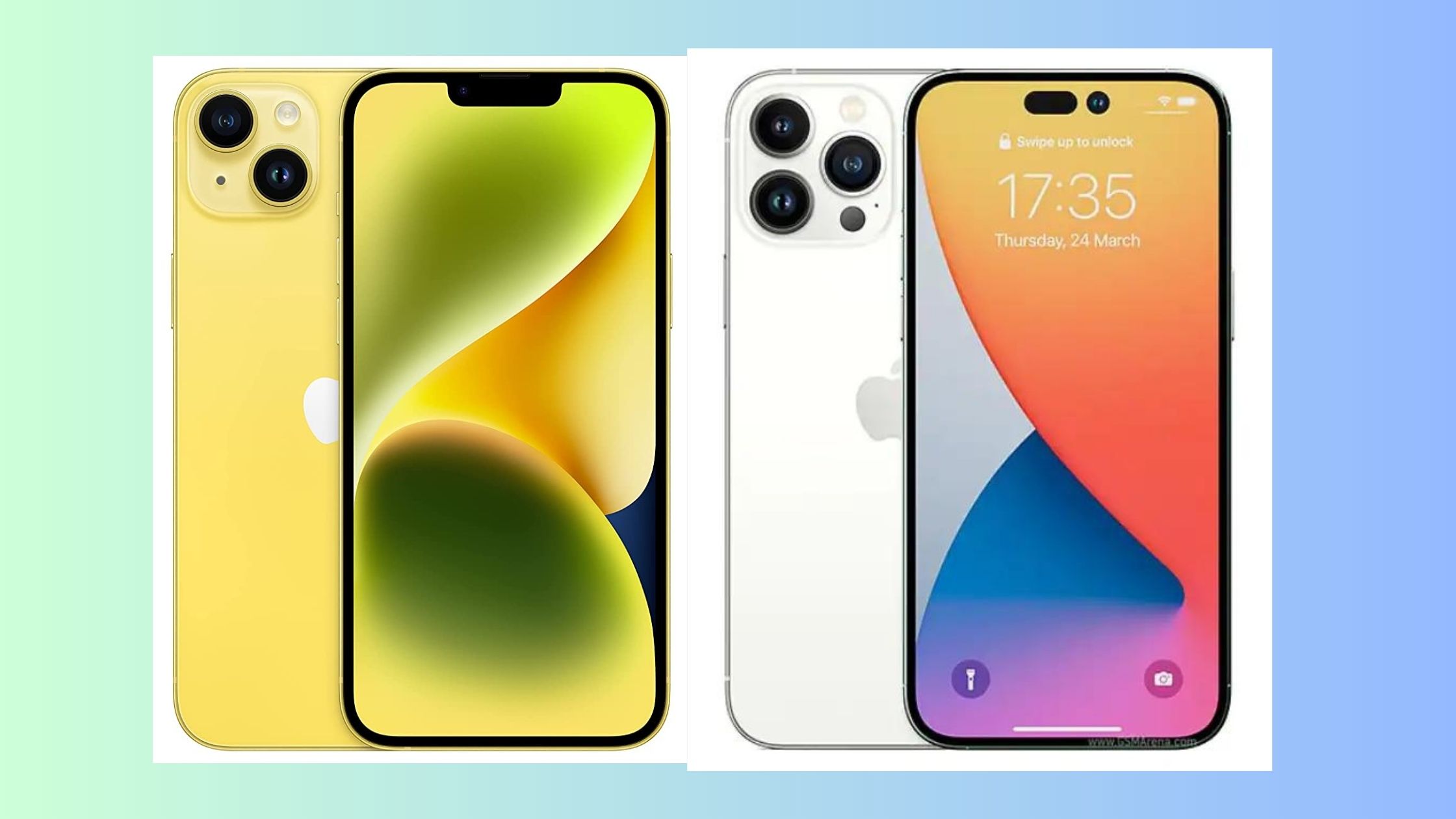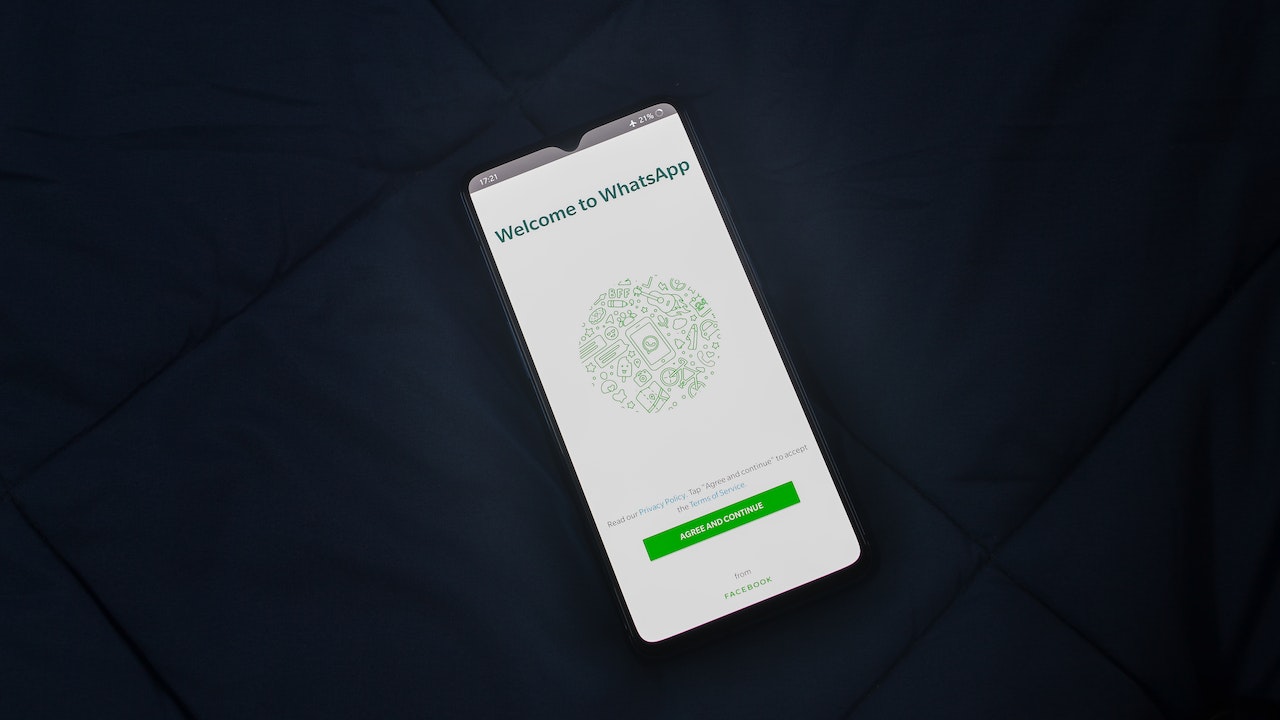iPhone 14 Plus vs. 14 Pro Max: Do You Really Need the Pro?

Apple recently launched its latest iPhone 14 series which includes the iPhone 14 and the iPhone 14 Pro Max. The two models have received different reactions from users, with some questioning whether the Pro Max is worth the extra money. In this article, we will compare the iPhone 14 Plus to the Pro Max and examine their differences to help you decide which model is right for you.
The first thing to note is that the iPhone 14 Plus is now Apple’s “big” iPhone, whereas previously, customers had to purchase the Pro Max to get a larger phone. This change in strategy has resulted in a wider gap between the 14 and 14 Pro series, making the decision between the two more challenging.
Key Differences:
| Apple iPhone 14 Plus | Apple iPhone 14 Pro Max |
|---|---|
| Aerospace-grade aluminium design with glass back | Surgical-grade stainless steel design with frosted glass back |
| 160.8mm height 77.6mm width 7.80mm thickness | 160.7mm height 78.1mm width 7.85mm thickness |
| Weight: 203 grams | Weight: 240 grams |
| 26-hour battery life (during video playback) | 29-hour battery life (during video playback) |
| No | ProMotion with adaptive refresh rates up to 120Hz |
| No | Always-on display |
| 800 nits max brightness (typical) 1,200 nits peak brightness (HDR) | 1,000 nits max brightness (typical) 1,600 nits peak brightness (HDR) and 2,000 nits peak brightness (outdoor) |
| A15 Bionic chip | A16 Bionic chip |
| “Notch” TrueDepth camera array | TrueDepth camera array with Dynamic Island |
| “Advanced” dual-camera system | “Pro” camera system |
| 2x optical zoom range (2x optical zoom out, digital zoom up to 5x) | 6x optical zoom range (3x optical zoom in, 2x optical zoom out, digital zoom up to 15x) |
| 12-megapixel Main camera with ƒ/1.5 aperture | 48-megapixel Main camera with ƒ/1.78 aperture |
| 12-megapixel Ultra Wide camera with ƒ/2.2 aperture | 12-megapixel Ultra Wide camera with ƒ/2.2 aperture 12-megapixel Telephoto camera with ƒ/2.8 aperture |
| Sensor-shift optical image stabilization | Adaptive True Tone flash LiDAR scanner Night mode portraits Macro photography Apple ProRAW ProRes video recording up to 4K at 30 fps (1080p at 30 fps for 128GB capacity) Macro video recording, including slo‑mo and time‑lapse |
| 128GB, 256GB, and 512GB storage options | 128GB, 256GB, 512GB, and 1TB storage options |
| Available in Blue, Purple, Midnight, Starlight, and PRODUCT(RED) | Available in Deep Purple, Space Black, Silver, and Gold |
| Starts at $899 | Starts at $1,099 |
In terms of size, the two models are very similar, with only a slight difference in weight. However, the iPhone 14 Plus is lighter and more comfortable to hold, making it less top-heavy. The aluminum frame of the iPhone 14 Plus also gives it a slight edge in terms of durability, while the Pro Max has a stainless steel frame.
Design
Both models feature ceramic shield glass and are IP68 water-resistant, so there is not much difference in terms of protection. The appearance of the two models is where the main differences lie. The dual-camera layout and thinner bump of the iPhone 14 Plus give it a sleeker and more modern look than the Pro Max. The glossy finish of the Pro Max is a fingerprint magnet, whereas the matte textured glass on the Pro Max looks and feels more premium.
However, if you use a phone case, most of these differences become irrelevant, and you should choose the design based on how the camera cutout looks, as this is the only part you will see. The Pro Max looks and feels like a more premium device, but the iPhone 14 Plus is lighter and more comfortable to hold.
Display
The display is another area where the two models differ significantly. The Pro Max has a superior display with an industry-leading peak brightness of 2000 nits compared to 1200 nits on the iPhone 14 Plus. The Pro Max’s ProMotion technology also makes it faster and more responsive, with a 120Hz refresh rate. While the difference in brightness may not be noticeable under typical use, the high refresh rate of the Pro Max makes a significant difference, giving a slicker and more fluid feel.
The Pro Max also features Dynamic Island, which adds an extra layer of functionality to the phone, allowing users to multitask and have a little fun. While this feature is not essential, it is a cool and useful addition.
Battery Performance
When it comes to the battery life of the iPhone 14 Plus and iPhone 14 Pro Max, there are a few things to consider. Apple claims that the 14 Plus has the best battery life ever on an iPhone, but the Pro Max is listed as having the best video playback performance. However, the always-on display can significantly reduce battery life. To determine which phone has the best battery life, a lab test was conducted with the phones set to identical brightness and playing the same videos on a continuous loop. The Pro Max lasted slightly longer in this scenario, but it’s not a realistic use case. So, the phones were set up with identical settings and used identically throughout the day, including browsing social media, making calls, gaming, using the camera, and being in standby mode. The Pro Max drained slightly quicker when using the camera, likely due to the greater amount of processing required. However, it lasted longer with videos, perhaps because the refresh rate is able to drop down lower than on the Plus. At the end of the day, the Pro Max had four percent battery remaining when the Plus finally died, which equated to around 20 minutes of use. It’s clear that the Pro Max is the real battery champ, but the Plus’s battery life is still excellent. Both phones last significantly longer than the smaller iPhones, and you can get a couple of extra hours of screen on time at least. The charging speeds are basically identical for all the phones, and they can all use lightning, magsafe, and wireless charging. However, a fast charger is needed to reach 50 percent charge in less than half an hour.
Camera Performance
In terms of camera, the iPhone 14 Pro has an advantage over the 14 and 14 Plus as it has a telephoto lens with a 14 and Plus stones, but the main and ultra-wide lenses are not that different. The Pro has a 48-megapixel main lens, but it takes 12-megapixel photos by default, like the 14 and 14 Plus. High-res 48-megapixel photos are only enabled in a separate mode by toggling on Pro raw. Pro raw photos are much higher quality, but it takes a lot longer to process, and the file sizes are exceptionally large. The Pro offers macro mode, which the 14 and 14 Plus do not have. The color accuracy of the ultra-wide lens on the 14 and 14 Plus is better than the Pro, which has a green tint. The Pro is better in terms of portrait mode, with its dedicated telephoto lens that can optically zoom up to a much higher level of 15x compared to 5x on the 14 and 14 Plus. The Pro also has a 2x optical zoom, which gives a subtle but nice improvement over previous iPhones. The 14 and 14 Plus are plenty good enough for the main lens but the Pro is better if you’ll be taking lots of portrait and zoom shots, especially at higher zoom levels. The low-light performance of the 14 is similar to the Pro, with the 14 having a wider aperture main lens to counter the Pro’s larger sensor. The main difference is when the phones activate night mode.
Price
In the latest iPhone 14 release, Apple is offering two models at a lower price point than the Pro: the iPhone 14 and the iPhone 14 Plus, priced at $799 and $999 respectively. Although the Pro offers some additional features, such as a better display and dynamic island, most people won’t notice much of a difference in terms of performance and battery life. Plus, thanks to an internal redesign, the 14 and 14 Plus are much cheaper to repair than the Pro.
Conclusion
For those who simply want a phone with the biggest display possible, the 14 Plus is a no-brainer. However, this does highlight the smaller iPhone 14 as the outlier, as it doesn’t offer the Plus’s battery life and display nor any of the Pro’s features. Overall, for those who use their smartphones heavily and love technology, the Pro may be a better option, especially considering the price hike of the iPhone 14 in certain regions. But for those who don’t care much about tech, there are cheaper options available, and the Pro may not be necessary.
In conclusion, the decision between the iPhone 14 Plus and the Pro Max will depend on your priorities. If you are looking for a phone with a superior display and faster response, the Pro Max is the clear choice. However, if you prioritize comfort and a sleeker design, the iPhone 14 Plus is the better option. Ultimately, it comes down to personal preference and budget.
Watch this video for more detailed review by InsideTech: Video Link


